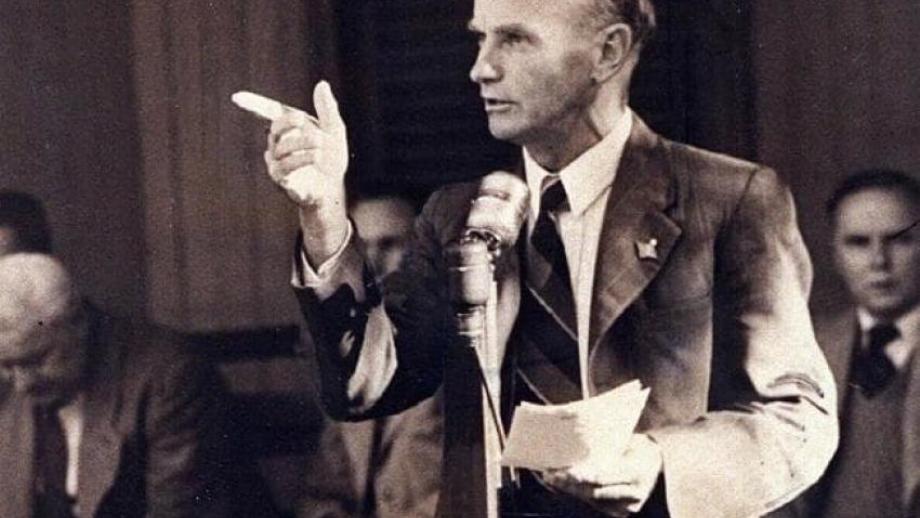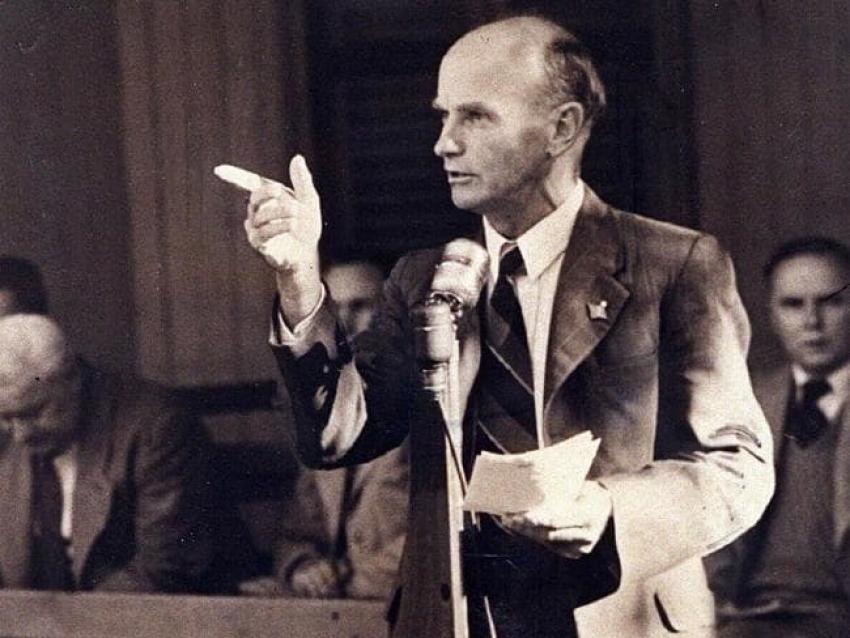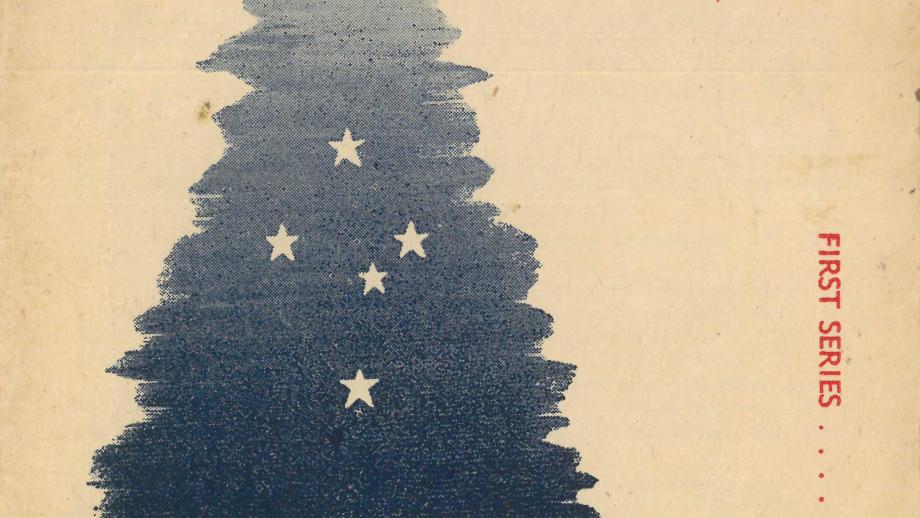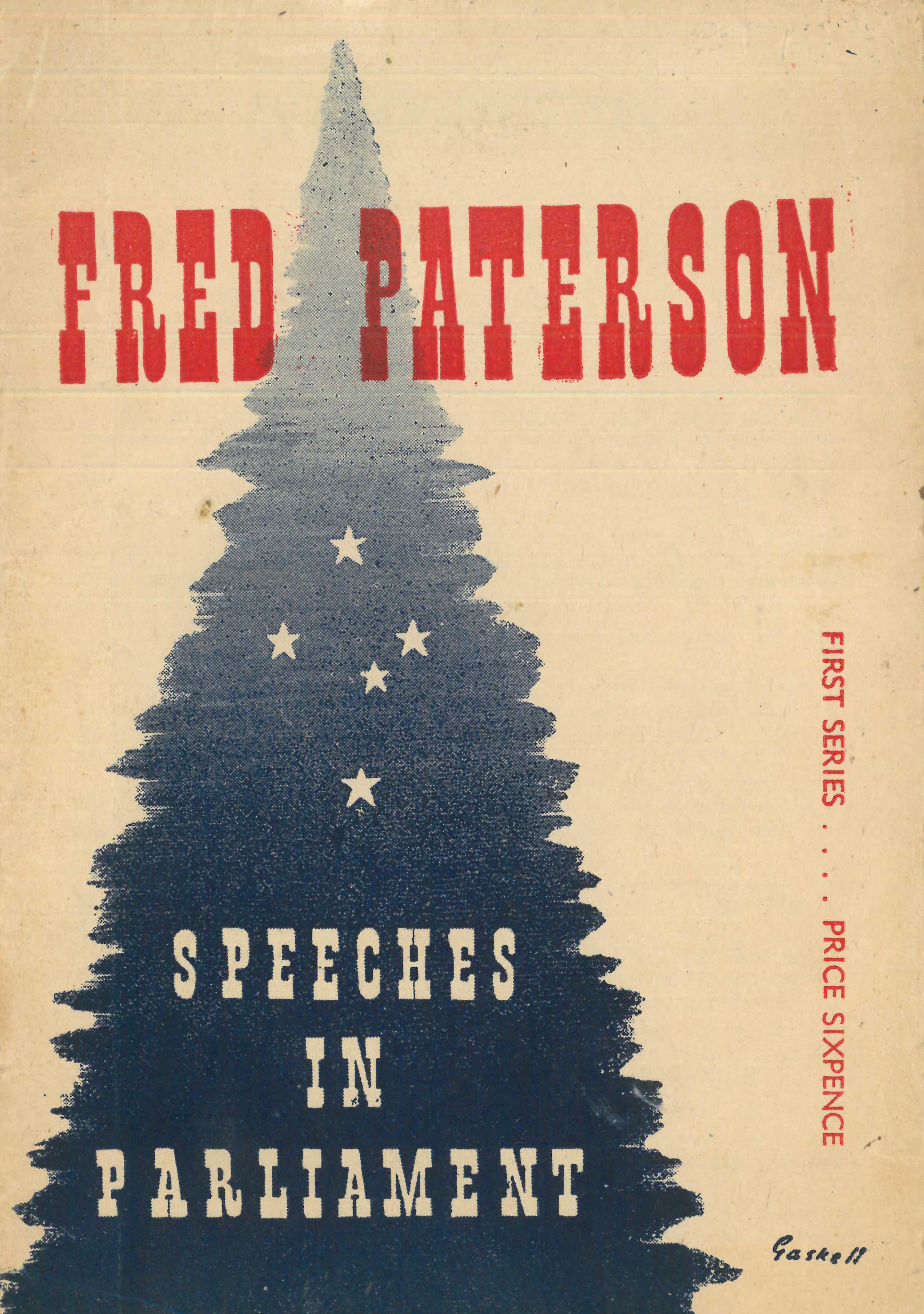Profile - Frederick (Fred) Paterson (1897-1977)
Barrister and politician Frederick Woolnough Paterson was born in Gladstone, Queensland. He suspended his studies at the University of Queensland in 1918 to enlist in the AIF. When he resumed his studies in 1919 he became involved in student politics and in 1923 joined both the Australian Labor Party (ALP) and the Communist Party of Australia (CPA).
Fred was challenged by the ALP Queensland Branch’s anti-communist policy. He sought preselection for the ALP in the Queensland Legislative Assembly and resigned from the CPA. The Queensland Central Executive of the ALP overruled his pre-selection and he contested the 1926 and 1929 state elections as an independent. He was unsuccessful, but did serve on Gladstone Town Council, including as deputy-mayor.
Fred enrolled to study for the Barristers' Board examinations and moved to Brisbane in 1928. He re-joined the CPA in 1930 and was arrested for allegedly making a seditious speech. Shortly afterwards, he failed the Bar exams three times. When he declared he would publish his answers in the tabloid newspaper Smith's Weekly he was subsequently admitted to the Bar and began practising in offices shared with the Friends of the Soviet Union.
Fred relocated to Townsville in 1932. He established a successful criminal law practice and served as alderman of Townsville Council, while also editing the communist newspaper North Queensland Guardian. He continued to contest both state and federal elections and won the state seat of Bowen in 1944, the first communist to be elected in Australia.
Fred actively defended participants in the 1948 Queensland Railway Strike and strongly opposed the Queensland Government’s Industrial Law Amendment Act. Whilst on his way to court to defend strikers, Fred became involved in a scuffle with police and was badly injured by a police baton. He spent three months absent from parliament and suffered long-term health effects.
After losing elections in 1950 and 1951, Fred relocated to Sydney and practiced industrial law. He represented the CPA in its High Court challenge to the validity of the Communist Party Dissolution Act (1950) and appeared before a Sydney magistrate in 1953 for Adam Ogston in the Communist Review sedition case. He remained a CPA member but had little interest in its hierarchy and wasn’t afraid to voice his opposition with party leaders.
Fred Paterson retired after suffering a coronary occlusion in 1961 and died in hospital in Sydney in 1977 at the age of 80.
References
Menghetti, D 2000, Frederick Woolnough (Fred) Paterson (1897-1977), Australian Dictionary of Biography, volume 15, National Centre of Biography, Australian National University, accessed <http://adb.anu.edu.au/biography/paterson-frederick-woolnough-fred-11349>
Lardner, T 1963, Profile: Fred Paterson, accessed <https://ro.uow.edu.au/cgi/viewcontent.cgi?article=1159&context=alr>
Australian Communist Party n.d., Fred Paterson, accessed <https://www.auscp.org.au/history/fred-paterson>



